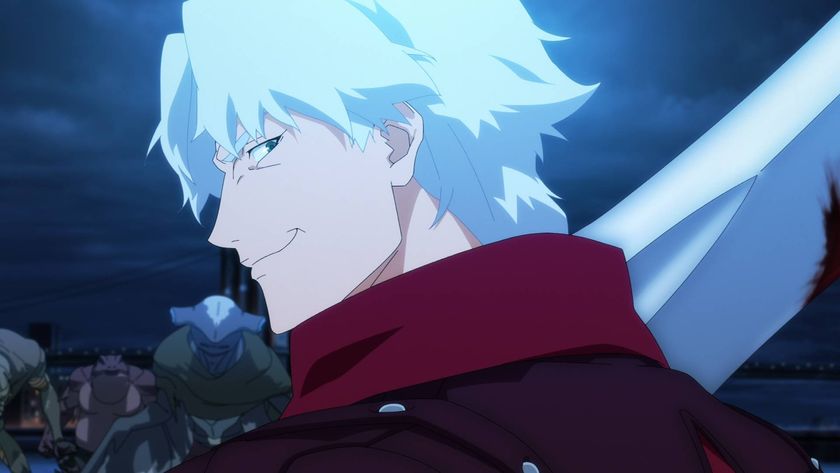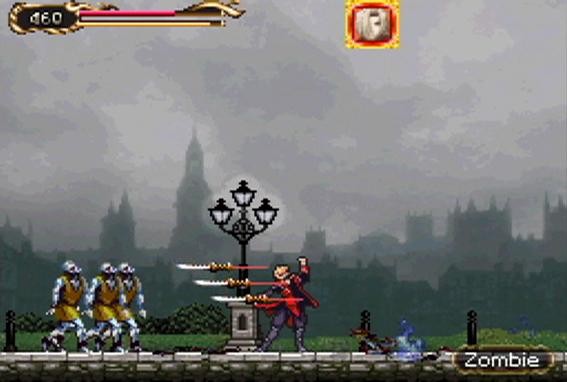Why you can trust 12DOVE
The incessant backtracking necessary in Castlevania has always been a huge divider for gamers. Some love having to constantly revisit areas just to see if a newly acquired power will give you access to another part of the castle, yet others just want to press forward and keep killing monsters. Portrait delivers a little bit of both by slapping huge, linear levels inside the labyrinthine castle. Each world is actually a living painting packed with creatures and items, but getting to the poison-spewing boss at the end is less about puzzle solving and more focused on slashing through the bloody masses. The worlds you'll visit through these demonic paintings are filled with minute details that nail the intended atmosphere. Currents of sand will seep through the cracks of an animated statue, or books will fall off shelves as you stomp around the place, for example.
Getting around the castle and its haunted artwork is graciously made easy by ample transport spots and save points. Still, even with quick ways to get around, Portrait doesn't offer the constant rewards that the two Sorrow games showered down. In those games, every enemy had a soul to steal and ability to learn, so any time spent wandering could double as a soul harvesting adventure. Here, the monsters are just in the way, occasionally dropping a piece of armor or some other random item. Many can be summoned as Charlotte's undead attack dogs, but it's not quite the same.

The more John uses his spears, axes, boomerangs or whatever items are found, the stronger they become (Charlotte's spells gain strength in a similar way as she levels up). Some skills are passed on by Wind, a friendly ghost that holds a bevy of side missions for Jonathan and Charlotte. Few are crucial to finish the game, but completists will want to find them all just to see what's next.
The whole method of powering up the duo feels drastically different from Sorrow, and that's an immeasurably good trait to have. These games all play so similarly, it's wondrous that simple tweaks like having two playable characters can make such a huge difference. Their different traits and dual-attack skills add layers to boss battles that none of the previous Castlevanias had, making Portrait a refined experience despite borrowing so many weapons, enemies and ideas from the earlier games.
More info
| Genre | Action |
| Description | Another side-scrolling, vampire-hunting excursion that plays like the previous games with subtle tweaks. We couldn't be happier. |
| Franchise name | Castlevania |
| UK franchise name | Castlevania |
| Platform | "DS" |
| US censor rating | "Teen" |
| UK censor rating | "" |
| Release date | 1 January 1970 (US), 1 January 1970 (UK) |
A fomer Executive Editor at GamesRadar, Brett also contributed content to many other Future gaming publications including Nintendo Power, PC Gamer and Official Xbox Magazine. Brett has worked at Capcom in several senior roles, is an experienced podcaster, and now works as a Senior Manager of Content Communications at PlayStation SIE.

Devil May Cry producer hopes new Netflix anime inspired by Christopher Nolan’s Batman trilogy will show fans that "the villain of your story is the hero of their own story"

Lazarus review: "Unfortunately Cowboy Bebop director's new sci-fi anime never quite melds into a harmonious whole"

Gigabyte just launched its new Aorus Master RTX 50-Series gaming laptops, and they have a Razer-beating TGP










